Clearing 2025
Clearing places have been filled on this course for 2025 entry.
Environmental Science
UCAS code F750
- Study mode
- Full-time
- Duration
- 3 years
- Start date and application deadlines
-
- Start date
Clearing places have been filled on this course for 2025 entry.
UCAS code F750
Our Environmental Sciences BSc (Hons) degree focusses on real-world issues such as climate change, pollution, and resource exploitation and will prepare you to play your part in tackling those challenges.
Understanding the complex interactions between the physical and biological environment and how humans influence them both is essential if we are to find solutions to the increasing global environmental challenges that face us today.
Our degree is accredited by the Institution of Environmental Sciences and will give you an in-depth understanding of both natural and human-induced environmental problems. All of our modules centre on real-world issues and application including climate change, pollution, and natural hazards.
The key strength of our programme is the unique breadth of staff expertise in the School of Environmental Sciences. This allows you to choose from an extensive range of modules delivered by experts in their field using state-of-the-art equipment and techniques. Your choices are guided by one of five module pathways themes: digital environments, ecology, oceans, society, sustainability, and the environment, and earth and surface processes.
These pathways ensure that our students graduate with the specialist skills and knowledge needed for their future careers, while also having the benefit of a wide-ranging education in Environmental Science.
From your first week to your final year, field classes are an integral part of your learning, giving you a chance to experience the environments that you are learning about and practice using industry-standard sampling and surveying approaches. In addition to making the most of Liverpool’s coastal location, you will also have the opportunity to undertake fieldwork in locations such as Snowdonia, Pembrokeshire, and the Peak District as well as options in Portugal.
A number of the School’s degree programmes involve laboratory and field work. Fieldwork is carried out in various locations, ranging from inner city to coastal and mountainous environments. We consider applications from prospective disabled students on the same basis as all other students, and reasonable adjustments will be considered to address barriers to access.
Our Environment Sciences BSc (Hons) course is accredited by the Institution of Environmental Sciences.

We’re proud to announce we’ve been awarded a Gold rating for educational excellence.
Discover what you'll learn, what you'll study, and how you'll be taught and assessed.
Year one is based on five core modules that provide key skills and knowledge across the School of Environmental Sciences in the classroom, online, field and laboratory. These are supported by two optional modules to allow you to begin to explore what interests you most.
Programme details and modules listed are illustrative only and subject to change.
Year two is comprised of three core modules (including a week-long field class), two modules from your chosen pathway, and three optional modules that you can choose from any pathway.
| Compulsory modules | Credits |
|---|---|
| ENVIRONMENTAL SCIENCE FIELD CLASS (ENVS285) | 15 |
| RESEARCH SKILLS AND EMPLOYABILITY (ENVS203) | 15 |
| STATISTICS FOR ENVIRONMENTAL SCIENTISTS (ENVS222) | 15 |
Programme details and modules listed are illustrative only and subject to change.
Your final year dissertation is the only compulsory module, where you conduct a piece of original research on a topic of your choice. You have the option to take one of our field courses, which recently have included destinations such as the Cairngorms and the Algarve. You will have two core modules from your chosen pathway and up to four optional modules.
| Compulsory modules | Credits |
|---|---|
| DISSERTATION (GEOGRAPHY & ENVIRONMENTAL SCIENCE) (ENVS321) | 30 |
Programme details and modules listed are illustrative only and subject to change.
You will be assigned an academic adviser in each of the three years who will provide pastoral care and help you develop your skills for your chosen career path.
To help you meet the intellectual and practical challenges of studying Environmental Science, our programmes are taught using a student-centred approach, involving a range of learning experiences. These include:
Assessment methods are tailored to the specific needs of each module, and student progression from year to year. A key consideration is that they are designed around the styles of communication, types of problems encountered, and the skills needed, in commercial, research and public sector jobs. Methods include exams, assessed essays, laboratory and computer practicals, online tests, field assignments including field notebooks, poster presentations, research reports and oral presentations. Many assessments involve group work. You will complete a compulsory research project (dissertation) in the final year on a topic of your choice. This is your opportunity to develop skills as an independent researcher, supported on a one-to-one basis by an expert in the field.
We have a distinctive approach to education, the Liverpool Curriculum Framework, which focuses on research-connected teaching, active learning, and authentic assessment to ensure our students graduate as digitally fluent and confident global citizens.
The Liverpool Curriculum framework sets out our distinctive approach to education. Our teaching staff support our students to develop academic knowledge, skills, and understanding alongside our graduate attributes:
Our curriculum is characterised by the three Liverpool Hallmarks:
All this is underpinned by our core value of inclusivity and commitment to providing a curriculum that is accessible to all students.
The qualifications and exam results you'll need to apply for this course.
| Qualification | Details |
|---|---|
| A levels |
BCC (including and ) |
| BTEC Level 3 national extended diploma |
DMM |
| BTEC combinations |
BTEC National Diploma MM plus a science subject at A level grade B; BTEC National Extended Certificate M plus a science subject at A level grade B another A level grade C. |
| Welsh Baccalaureate Advanced |
C in the Welsh Baccalaureate, plus BC at A level including a science subject at grade B. |
| Access |
Pass relevant Access to HE Diploma with 45 Level 3 credits with 27 at Distinction and 18 at Merit |
Studying with us means you can tailor your degree to suit you. Here's what is available on this course.
University of Liverpool students can choose from an exciting range of study placements at partner universities worldwide. Choose to spend a year at XJTLU in China or a year or semester at an institution of your choice.
Immerse yourself in Chinese culture on an optional additional year at Xi'an Jiaotong Liverpool University in stunning Suzhou.
Broaden your world by spending an additional year of study at a partner university abroad following your second year of study.
Take a semester of your second year of study at one of our worldwide partner institutions.
Spend a summer abroad on a study placement or research project at one of our worldwide partner institutions.
Year in industry placements give you an in-depth workplace experience where you can develop your skills and apply your learning.
You don't need to decide now - you can choose to add a year in industry after you've begun your degree.
To spend a year in industry, you'll need to secure a placement with an organisation. If you're unable to find a placement, you'll continue with the standard version of the course without a year in industry.
Every student at The University of Liverpool can study a language as part of, or alongside their degree. You can choose:
Students studying Environmental Science BSc at XJTLU can study this course at the University of Liverpool. Read more about Environmental Science BSc (Hons) as part of the 2+2 programme .
The natural next step for ambitious XJTLU students who want to build a brilliant career.
At Liverpool, we place a great deal of emphasis on learning through experience. You will be taught in Europe’s most advanced teaching laboratories and will participate in a strong fieldwork programme that will help to prepare you for solving real work problems. You will have access to excellent resources, including research-level analytical equipment and computing facilities, and will be trained in industry-standard methods using materials donated by companies. Our Department of Earth, Ocean and Ecological Sciences programmes will provide you with specific scientific training and equip you with a wide range of transferable skills valued by employers. You will graduate as a practical, confident and employable earth scientist.
We have a very active Earth Sciences student society – The Herdman society. The society runs academic and social events from guest lectures and field trips to gala dinners, symposiums and sports events.
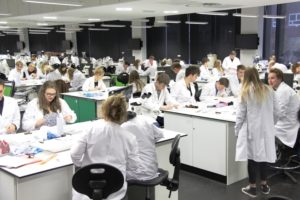
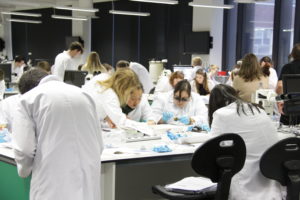
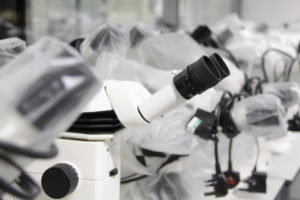
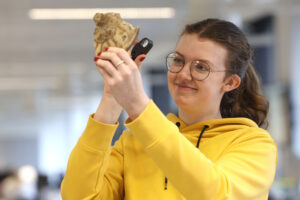
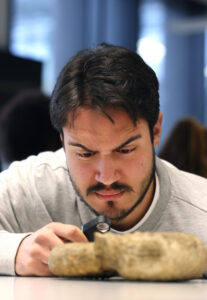

Hear about why studying an environmental science courses with the University of Liverpool is unlike anything else.
Discover what you’ll study, the facilities and resources you’ll have access to, and how we’ll prepare you for your future career.
From arrival to alumni, we’re with you all the way:
I have found that I am learning and understanding ideas in a more in-depth way and linking the theory we are taught about within our modules to everyday situations such as environmental crises on the news.

Want to find out more about student life?
Chat with our student ambassadors and ask any questions you have.
Environmental Science at Liverpool is focused on providing you with the key knowledge and practical skills to be successful within the environmental sector, such as report writing, field and laboratory practical skills, oral presentations, project planning, and coding and modelling skills.
Recent Environmental Science graduates have been employed in roles within the sector such as:
Other roles outside of our immediate sector have included Accountancy and Education.
As part of your degree the following work experience opportunities are available:
90% of geography and planning students are in work and/or further study 15 months after graduation.
(Discover Uni, 2018-19.)
Your tuition fees, funding your studies, and other costs to consider.
Full-time place, per year - £9,535
Year in industry fee - £1,905
Year abroad fee - £1,430 (applies to year in China)
Full-time place, per year - £29,100
Year in industry fee - £1,905
Year abroad fee - £14,550 (applies to year in China)
The tuition fees shown are correct for 2025/26 entry. Please note that the year abroad fee also applies to the year in China.
Tuition fees cover the cost of your teaching and assessment, operating facilities such as libraries, IT equipment, and access to academic and personal support. Learn more about paying for your studies.
We understand that budgeting for your time at university is important, and we want to make sure you understand any course-related costs that are not covered by your tuition fee. This could include expenses such as field clothing and sustenance (food and drinks) during fieldwork.
Find out more about the additional study costs that may apply to this course.
We offer a range of scholarships and bursaries that could help pay your tuition and living expenses.
If you’re a UK student joining an undergraduate degree and have a household income below £35,000, you could be eligible for a Liverpool Bursary worth up to £2,000 for each year of undergraduate study.
Apply for an Asylum Seekers Scholarship and you could have your tuition fees paid in full and receive help with study costs. You’ll need to have applied for asylum in the UK, or be the dependant of an asylum seeker, and be joining an eligible undergraduate degree.
If you’ve spent 13 or more weeks in Local Authority care since age 14, you could be eligible for a bursary of £3,000 per year of study. You’ll need to be a UK student joining an eligible undergraduate degree and be aged 28 or above on 1 September in the year you start.
Are you a UK student with a Black African or Caribbean heritage and a household income of £25,000 or less? You could be eligible to apply for a Cowrie Foundation Scholarship worth up to £8,000 for each year of undergraduate study.
If you’re a UK student identified as estranged by Student Finance England (or the equivalent UK funding body), you could be eligible for a bursary of £1,000 for each year of undergraduate study.
Joining a School of Biosciences degree and have a household income of less than £25,000? If you’re a UK student, you could apply to receive £4,500 per year for three years of your undergraduate course.
Do you live in the Liverpool City Region with a household income of £25,000 or less? Did neither of your parents attend University? You could be eligible to apply for a Nolan Scholarship worth £5,000 per year for three years of undergraduate study.
Are you a UK student with a household income of £25,000 or less? If you’ve participated in an eligible outreach programme, you could be eligible to apply for a Rigby Enterprise Award worth £5,000 per year for three years of your undergraduate degree.
Are you a UK student with a household income of £25,000 or less? Did neither of your parents attend University? You could be eligible to apply for a ROLABOTIC Scholarship worth £4,500 for each year of your undergraduate degree.
Apply to receive tailored training support to enhance your sporting performance. Our athlete support package includes a range of benefits, from bespoke strength and conditioning training to physiotherapy sessions and one-to-one nutritional advice.
Joining a degree in the School of Electrical Engineering, Electronics and Computer Science? If you’re a UK student with household income below £25,000, you could be eligible to apply for £5,000 a year for three years of study. Two awards will be available per academic year.
If you’re a young adult and a registered carer in the UK, you might be eligible for a £1,000 bursary for each year of study. You’ll need to be aged 18-25 on 1 September in the year you start your undergraduate degree.
Have a question about this course or studying with us? Our dedicated enquiries team can help.
Last updated 14 August 2025 / / Programme terms and conditions